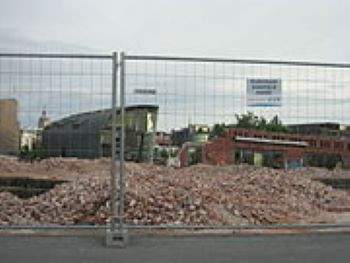Finland starts a fence on Russian border amid migration and security concerns.

IMATRA, Finland,
Finland is building the first stretch of a fence on its border with Russia on Friday, less than two weeks after it joined the NATO military alliance to complete a security U-turn taken in response to the war in Ukraine.
Fearing retaliation from the East following its NATO application, the government decided last year to construct the barrier, primarily in case Russia moved to flood the border with migrants.
Finland aims to guard against a repeat of events on the European Union's eastern frontier in Poland in winter 2021 when the bloc accused neighboring Belarus - a staunch Russian ally - of engineering a crisis by flying in migrants from the Middle East, giving them visas and pushing them across the border.
Made of steel mesh, the Finnish fence is scheduled to cover some 200 kilometers (125 miles) of the most critical parts of its border by the end of 2026. Project manager Ismo Kurki said on Friday that, while it is not intended to stop any invasion attempt, the fence will have surveillance equipment.
Meanwhile, there has so far been little human activity along the border, which stretches to 1,300 km in all.
Last year, Finland detected only 30 illegal crossings there, while Russian border guards stopped some 800 attempts to enter Finland, the Finnish Border Guard said.
"The situation at the Finnish-Russian border has been stable and is stable at the moment," said Border Guard Brigadier General Jari Tolppanen, as one of his teams worked on the first 3-kilometer (1.9-miles) stage of the fence at Imatra, some 250km (155 miles) northeast of Helsinki.
"But in this totally changed (security) situation, Finland must have more credible and more independent border control. And Finland needs to be less dependent on Russian border control," he added.
Poland and the Baltic States have already begun erecting fences on their borders with Russia and Belarus following the February 2022 invasion of Ukraine.
Until now, the Finnish-Russian border has been a mere line in the vast forests covering the area, marked only by a low wire fence intended to stop cattle and other domestic animals but not people.
The new fence will be 3 meters (10ft) high, topped with razor wire, and tracked by a road, and cost an estimated 380 million euros ($417 million).
"Most of (the border area) is very remote and very difficult to access. We construct the target areas which are accessible by vehicle and where large-scale illegal immigration is likely," Tolppanen said.
Read the full article here:




